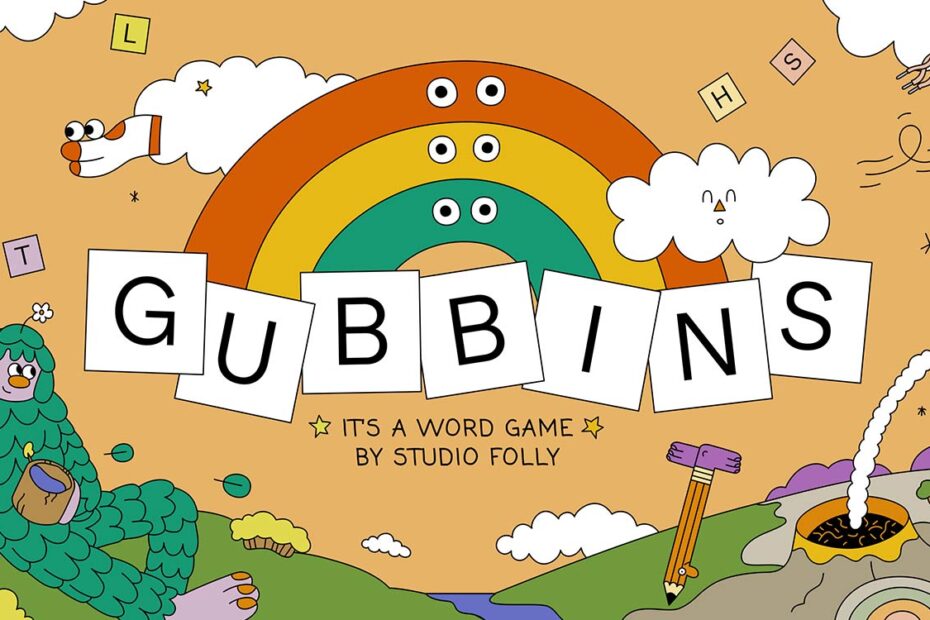Developer: Studio Folly Pty Ltd
Price: Free [$5.99/£5.99 infinite play]
Size: 731 MB
Version: 1.0.3
Platform: iPhone & iPad
Gubbins is an appropriate name for this new word game from Studio Folly Pty Ltd. It reflects a certain scattershot approach that proves superficially appealing, but ultimate lacks a coherent direction.
Each game of Gubbins presents you with a mostly blank 9 x 9 grid, and tasks you with dragging and dropping a jumble of letters to form words. Those words aren’t ‘locked in’ until you swipe across them, at which point the score is totted up and the letters disappear.
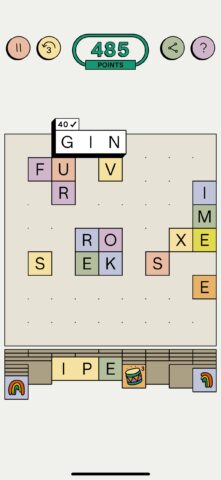
Swipe to lock in words
You’ll get bonus scores for locking in multiple word close-outs in a row, and there’s a nice audiovisual (and haptic) reward for swiping a bunch a bunch of words in a row.
Adding spice to each round is a range of ‘Gubbins’, or special-use squares with either positive or negative effects. You’ll get a limited choice over which Gubbin enters the field of play on each occasion, but their effects can be wide-reaching.
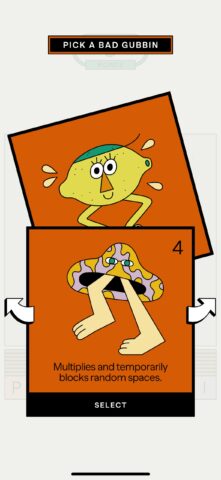
You’ll occasionally need to pick from two Gubbins
Positive Gubbins might spawn extra ‘S’ letters in the field of play, grant you a bonus ‘ING’ suffix placement, or clear an entire row and return it to your letter jumble. Negative Gubbins might freeze letter squares in place for a few turns or bombard you with a random selection of tiles, to name a couple of examples.
It’s all bright and breezy fun in the early stages, helped enormously by some absolutely stellar presentation. The weirdly shaped, anthropomorphised objects and retro color palette call to mind Yellow Submarine by The Beatles, or a psychedelic kids’ show from the ’70s.
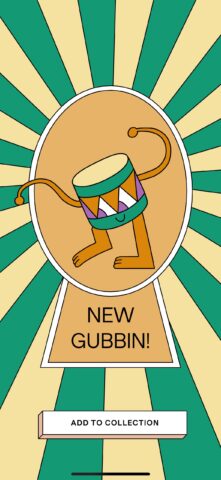
The presentation really is delightful
Unfortunately, it can only distract from the game’s shortcomings for so long. Put simply, the core word-assembling action can get really boring really quickly.
The terms for when and how new letters arrive are never fully spelled out in the tutorial, but it seems to slow to a trickle at certain points. When it does, playing the game feels like pulling teeth, with limited options and no apparent way to jumpstart a stalled grid.
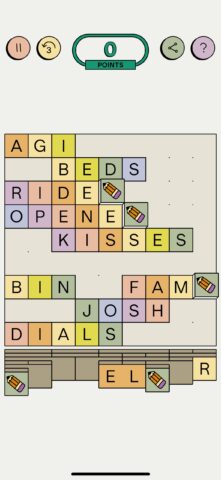
Pencil mode is the purest form of the game
Then there’s the payment structure for the game. You can play once per day for free, then you’ll need to pay $5.99/£5.99 to unlock unlimited play of all three modes. Ironically, the game only really has the legs to stand up to that initial limited mode, which is a relatively expensive realization to make.
Unless we’re missing a major trick here, Gubbins very much appears to be a case of style over substance – a jumble of very well-presented miscellaneous components that never coheres into the rich and full word game that you want it to be.
